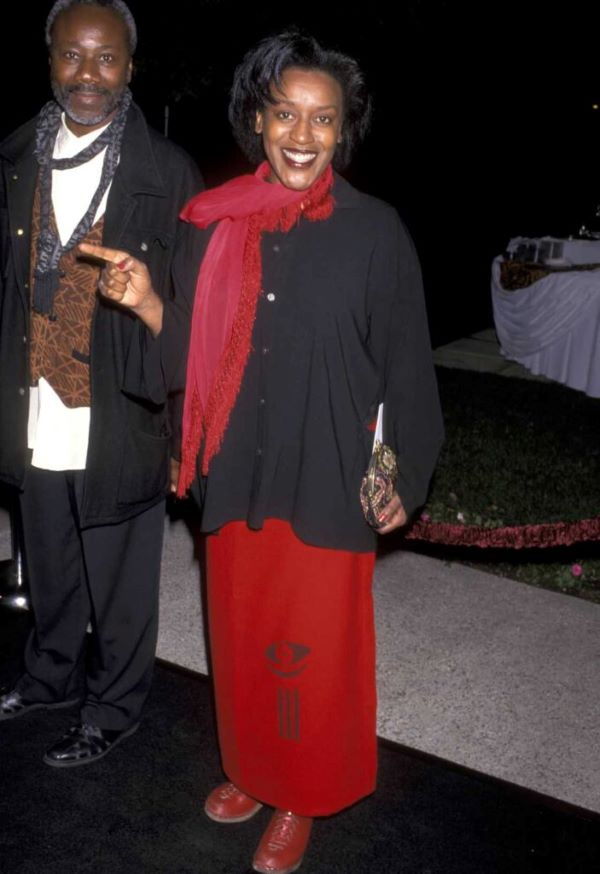Libya Kone, born in 1973, is known primarily as the daughter of prominent figures in the fields of anthropology and acting. Daughter of renowned anthropologist Boubacar Kone and celebrated actress CCH Pounder, she has navigated a unique path shaped by an illustrious family background.
This article delves into her background, personal influences, career aspirations, and legacy from a prestigious lineage.
Family Background
Libya Kone hails from a diverse and culturally rich heritage. Her father, Boubacar Kone, was a distinguished anthropologist born in 1942, revered for his dedicated work in preserving African culture and history.
Notably, he founded the Museum of African Art in Dakar, Senegal, which became a pivotal institution in promoting and safeguarding African heritage. With a commitment to cultural preservation, Boubacar’s work has left an indelible mark on the field of anthropology.
On the other hand, CCH Pounder, born on December 25, 1952, in Georgetown, British Guiana (Guyana), is a highly respected actress celebrated for powerful roles in television and film.
Known for performances in acclaimed series such as The Shield and NCIS: New Orleans and films like Avatar and Bagdad Café, Pounder has garnered significant recognition for contributions to the arts. Her marriage to Boubacar Kone in 1991 brought forth three children: Libya, Matthew, and Nicole Kone.

Source: https://entrepreneurera.co.uk/
Early Life and Education
Growing up in a household with such strong cultural influences, Libya Kone was undoubtedly exposed to a rich tapestry of artistic expression and intellectual thought.
While specific educational details are not publicly available, it is evident that the environment fostered a deep appreciation for the arts and culture. Surrounded by discussions about African heritage and storytelling, she likely developed a unique perspective on identity and its representation in the arts.
Career Aspirations
Despite maintaining a low profile, Libya Kone’s career pursuits reflect a meaningful connection to her heritage. Positioned within the arts, she has engaged in projects that align with the family’s ongoing legacy of cultural preservation. Participation in various artistic endeavors hints at the influence of parents on shaping her career objectives.
Notably, Libya’s involvement in the Museum of African Art in Dakar, established by Boubacar, showcases a commitment to Boubacar Kone’s mission of promoting African culture.
Contributing to the museum’s operations signifies an endeavor to honor her father’s memory while actively participating in the preservation of African art and history.
Her collaborative efforts with other artists and cultural institutions highlight an interdisciplinary approach to addressing cultural issues. These initiatives help to amplify the visibility of African and diasporic artists on global platforms, furthering discussions on cultural identity and representation in contemporary art.
Personal Life and Advocacy
While details surrounding Libya Kone’s personal life remain private, her family’s dedication to education and cultural activism likely informs values. Like her mother, she shares a profound appreciation for the arts as a vehicle for change.
This inclination towards storytelling, whether through visual arts, literature, or other mediums, likely plays a significant role in her identity.
Libya also appears to nurture connections to her heritage through philanthropy, potentially supporting education and cultural awareness initiatives. Participation in events promoting diversity and cultural exchange suggests an active engagement in community building.
Legacy and Influence
Though Libya Kone may not seek the spotlight like her parents, the influence of lineage is undeniable. The combined legacies of Boubacar Kone and CCH Pounder serve as a backdrop and create opportunities to contribute meaningfully to the arts and cultural landscape.
Their dedication to heritage preservation and representation resonates within her work and aspirations.
As a figure shaped by a legacy of cultural advocacy, Libya embodies a narrative of quiet dignity and respect for heritage. The commitment to maintaining a private life away from public scrutiny while still contributing to cultural discussions highlights the diverse paths available to those with famous backgrounds.
Conclusion
Libya Kone’s life represents a harmonious blend of cultural influences, advocacy for arts, and commitment to preserving the family’s legacy. While details of her personal and professional life might be private, the impact of her lineage echoes through her contributions to the cultural arena
. As this journey continues, she remains a figure of intrigue, emblematic of the power and significance of family heritage in shaping individual identity and purpose.

Hey there, food lovers! 🌹
I’m Wild, the proud owner of Chanel | Wild Rose Bean. In my cozy corner of the internet, I’m whipping up wholesome recipes inspired by delicate rose petals. Come along on this culinary journey where every dish is crafted with love and care. 💕
